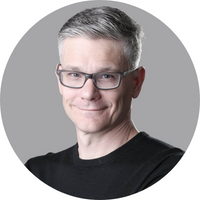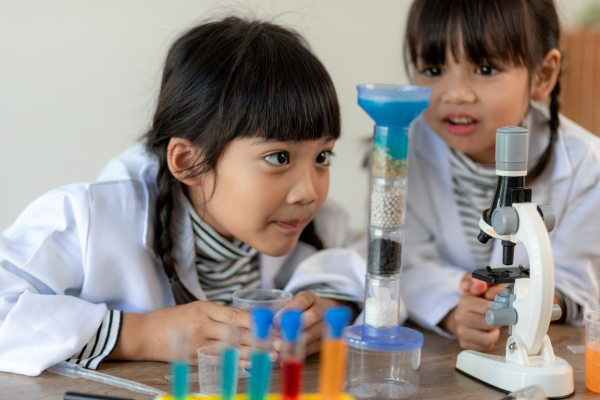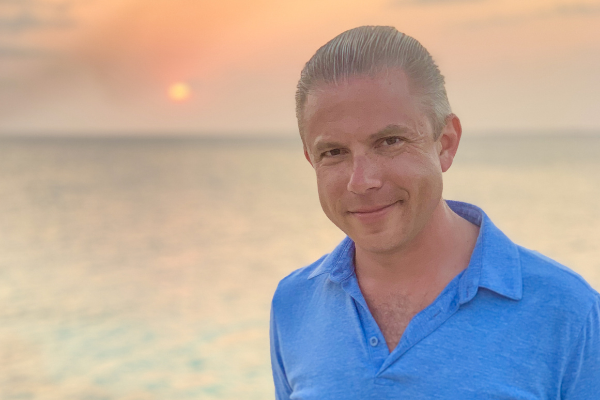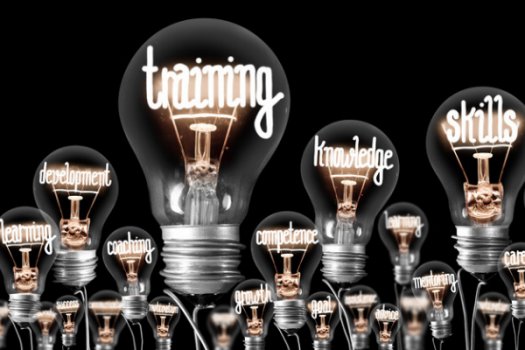
What are some of the challenges you have encountered in building and leading collaborations with academia? What did you learn about managing them?
The hardest thing about a collaboration is the contract. The hardest part of the contract is the intellectual property (IP) terms. Many US universities want to own all of the IP that comes out of any collaboration. European universities are much more reasonable.
You have held positions where you were expected to recognize and develop talent. Talented people don’t come with labels on their foreheads. What are some of the leading indicators you look for when it comes to identifying talented people?
First of all, a one-hour interview is not going to be a good predictor of long-term performance. I really like hiring people who have worked with the company before: interns, students, collaborators. This level of experience is so much better than a 60-minute interview. I will also ask friends of mine if they’ve worked with the candidate. I know a lot of people.
Beyond that, I look for someone who has, even in school, some lab experience. I ask about the details of what they studied, and can often go deep with questions, just based on my curiosity. Then I begin to ask question about the context. How did this fit in with something that was impactful? With the larger team? Or larger project? I look for people who understand their specific area of research very well, as well as understand how it fits into the wider world.
In the decade starting in 2030, what would you project will be the ratio of FDA-approved drugs manufactured in living organisms such as bacteria, yeast, and mammalian cells vs. through chemical synthesis? What leads you to that conclusion?
2030 is only 9 years away. I can “see” 9 years into our future, because we are developing the Phase 1 processes now. I think that the number of biologics will go up, but not radically higher. I think there will be more antibody drug conjugates getting approved than there are today. There will be a lot more virus-based therapies: gene therapy, oncolytic viruses, cell therapies (that use viruses) and vaccines.
What technology trends are you following most closely, with an eye toward how they may impact the work of your scientists, and biopharmaceutical development at AstraZeneca?
Mass Spec keeps evolving. I call it the Rocket Science of the biotech world. Machine learning and AI is important. Many people try to use these tools, hoping to turn bad data into gold. I think we’ll be generating good data specifically to train these models. I’d like to see a purely virtual process development based only on the protein sequence. RNA vaccines and therapies will be important, which means that DNA production at very large scales will be important.
If you had to break it out in rough percentages, how much of your career success do you owe to (a) your formal academic schooling, (b) the professional training provided by your employers, and (c) general ‘on the job’ experience?
More than most, I use what I learned in college and graduate school a lot. The best thing I ever learned from professional development was when my company hired an industrial psychologist to do 360 interviews. They were much better than the multiple-choice 360s we typically get. I really got to see how I could become a better leader through this exercise.
Your career now spans more than 25 years. What are some of the most important lessons you have learned about succeeding in industry that professors don’t teach you in university?
People say scientists should not be biased. But I train my team that’s not completely true. We should have a quantitative understanding of what we expect to happen, and ideally verify it as we’re doing the experiment. If it doesn’t line up, then there is something we don’t understand; we may have discovered something new. Or we may be working with broken equipment. Either way, you may not have noticed unless you had a quantitative understanding of what should happen. “Oh, that’s not what I expected” can be a discovery, not a disappointment. Most problems are not technical, they are psychological (also known as political, but the term has such a negative connotation. People are people.) Most people don’t tell you why they don’t want to do something. Many of those people don’t know why themselves. Listen to what people are not telling you.
Talk about the metaphorical “one that got away”. Is there a project that eluded you? Why? And if you could return to it, what would you do differently?
I was the CMC team lead for bapinuzumab in 2008 during the process characterization and process performance qualification. It was the first time I’d ever done it. The drug was for Alzheimer’s and had the same mechanism of action as the recently approved aducanumab. Bapinuzumab didn’t work, so it didn’t get approved. We worked very hard to get the commercial process defined and running.
I was not so disappointed that it didn’t get approved. Perhaps I’m jaded. Or I’m robust.
How has your family influenced your leadership style?
I care very much for my family, and this happens in my team as well. In many ways, I look at my team as my family. I want them to be successful as individuals, as well as get the job done that AstraZeneca wants done. I’m very lucky in that I can often provide my team with opportunities that develop their desired career as part of their job.
You are a long-time member of the ACS Biochemical Technology Division. How has that affiliation benefitted you?
It really helped me expand my network of friends. I feel like I could go to any major city in the US and I’d have a friend there that I met at ACS.
I also learned how to lead and be an executive, at least an executive of a small, poorly funded, volunteer organization. It was great experience.
What non-technical skills have you most relied on to-date for your career advancement?
One of the things that I learned from that industrial psychologist was that empathy is one of my superpowers. If I can listen to what a person is saying, and what they are not saying, if I can see on their face what their feeling, I can help them discover more about themselves.
It also is hard to deliver criticism or correction because I feel the pain. I’ve learned how to deliver criticism in a way that makes them feel like they’ve something to look forward to. Something like, “I think if you do it this way, then you will be more successful.”
Another superpower is curiosity. “Wow, that’s neat” is a great way to discover new things at work or at home.
You and your wife home-schooled your children. What sort of thoughts ran through your mind in recent times as millions of parents across the U.S. found themselves trying to support their children’s education from their homes?
I think everybody suffered this past year. I think even homeschoolers suffered because they could not get out and socialize like they normally would. I had hoped that we would realize how important teachers are to the economy. We can’t have the US economy without kids going to school and parents undistracted. If I had my way, teachers would get a 20% raise, and a yearly bonus, like they were bankers. I want to see rich teachers. They do as much for our economy, in my opinion, as any banker.
You did your undergrad at the University of Maine in Orono, and your PhD at the University of Wisconsin in Madison. How would you compare the winters in those two northern climes?
Madison was much colder. Orono is on the Penonscot River, which is tidal in Bangor, Maine, just a few miles down from Orono. So gets a lot of weather like the coast, which tends to be warmer.
Madison had two weeks every year where the high temperature was -20F. I remember rejoicing when it warmed up to -15F.
Orono got Northeasters, blizzards fed from the warm ocean waters off the coast. These were always exciting because maybe, just maybe, they’d cancel school. There is no hope like the hope of a kid for a snow day. I still feel that way at 55.
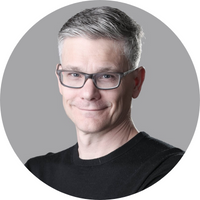
Jon leads the Bioprocess Technologies and Engineering (BTE) function in Biopharmaceutical Development at AstraZeneca. He is responsible for development of transformative new process technologies and engineering solutions in support of AZ biologics portfolio. BTE is a specialized function created to ensure leadership within bioprocess engineering and bio-manufacturing technologies within AZ. He was recently inducted as an ACS Fellow.
Jon is a thought leader within Biologics Process Sciences with over 27 years of experience in major biopharmaceutical companies, including 15 years at Pfizer (formerly Wyeth Biopharma and Genetics Institute) and 6 years at Boehringer Ingelheim (BI). Jon is a strong technical leader who has pioneered the development of novel purification technologies while at Wyeth/Pfizer and most recently continuous manufacturing technologies at BI. Much of his work has been recognized via strong peer reviewed publications record and patents. Jon received his BS in Chemical Engineering from University of Maine and his PhD in Chemical Engineering from University of Wisconsin, Madison. Dr. Jon Coffman is Global Head Innovation, Technology at Boehringer Ingelheim in Fremont, California. Jon and his team are instrumental in driving the implementation of AstraZeneca’s bioprocessing innovation vision.
This article has been edited for length and clarity. The opinions expressed in this article are the author's own and do not necessarily reflect the view of their employer or the American Chemical Society.
Copyright 2022 American Chemical Society (All Rights Reserved)

